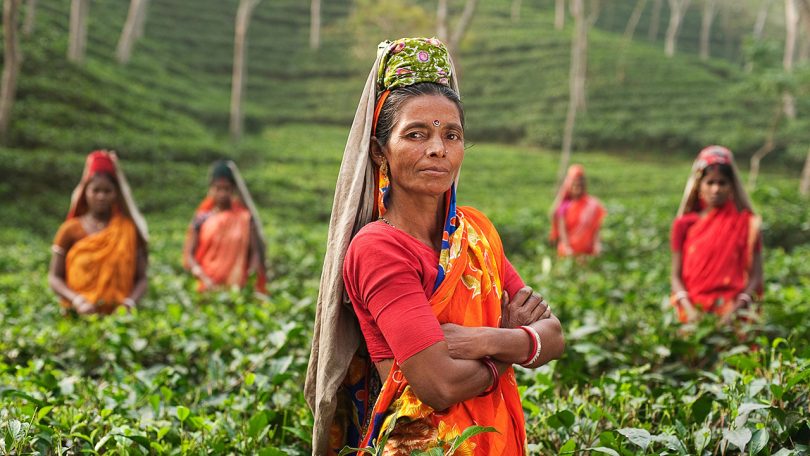“Collectively, rural women are a force that can drive global progress.”
—Secretary-General Ban Ki-moon
Rural women—their contributions, families, struggles and communities worldwide and how we can all honor, support and recognize them—were the focus of International Day of Rural Women, Oct. 15.
Rural women are often acutely in need of support, but they’re not the only ones who benefit from their empowerment. The key roles they play in their communities position rural women uniquely well to benefit those around them as they thrive. Yet even as the world has seen many advances in medicine, economics, production and more; the number of rural women living in poverty has risen.
Rural women make up about a quarter of the world’s population and produce about half of the world’s food, yet they own only 1 percent of the land. They are resilient, strong, hard workers—from the women who provide for their families each morning only to go out and work 12-hour days fishing or harvesting to the women in sub-Saharan Africa who, collectively, spend about 40 billion hours hauling water each year—yet they are undereducated and often receive little access to training or essential tools for their work.
Women also play pivotal, and sometimes desperately difficult, roles in their families. They are the most likely to be caregivers both for young and old family members, usually on top of their daily responsibilities. When food resources run scares, it is most often women in poor rural families who go hungry, giving food instead to their children and husbands.
International Day of Rural Women was established by the UN in 2007 and first observed in 2008. The observance raises awareness of the crucial role rural women play in the welfare of societies worldwide, and invites governments and organizations to pledge their support for these women, their families and their communities.
Simple measures can often go a long way. Providing women and girls with greater access to education can help for a lifetime. Less than half of school-aged girls in many rural communities attend school, and when family resources suffer, they may be pulled from school to help support the family. Women often have no chance to continue their education, but studies have shown that women with secondary educations tend to marry later, have fewer children and be less susceptible to domestic violence. When women are given access to skills-based training and agricultural resources it can greatly increase the productivity of their farms, helping to feed hundreds of millions worldwide.
When rural women win, everyone wins.
Through concerted and cooperative efforts to empower rural women; governments have begun to fight hunger, bolster economies, deal with natural disasters and rising food prices, support families and transform societies.
We would like to express our support of and admiration for the strides made and awareness raised through International Rural Women’s Day. It’s second only to our admiration for the women themselves. You are superheroes.
Learn more about International Day of Rural Women.



